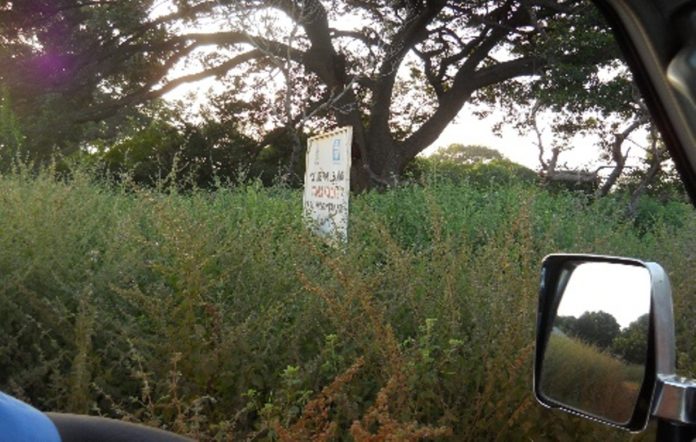This column is devoted to monitor and report on issues that relate to production, processing, preservation and marketing of agricultural produce, aimed at ensuring food security in the Gambia as well as the interventions of Government and Non-governmental Organizations in this regard.
Agriculture remains both a new and old source of national revenue and (youth) employment.
Improved public awareness and discussion of the issues involved, will significantly maximize agricultural outcomes and the contribution of the sector, to economic growth and job creation.
This is precisely the reason why Farmers’ Eye is critically looking at every Agricultural programme or policy, to gauge whether our Agriculture and Natural resources are properly harnessed to ensure food self-sufficiency.
Section 192 of the Constitution states: “There shall be established a Lands Commission whose composition, functions and powers, shall be prescribed by an Act of the National Assembly”.
This Act has already been passed and assented to by the President and the Commission established, but yet to be functional. Farmers’ Eye column calls on the Executive to make the Commission functional, to address the series of land disputes in the country.
In the last edition, we highlighted the issues on indigenous peoples and other communities with customary tenure systems. In this edition, we shall continue from where we stopped.
State and non-state actors should strive where necessary, together with representative institutions of affected communities, to provide technical and legal assistance to affected communities to participate in the development of tenure policies, laws and projects in non-discriminatory and gender-sensitive ways.
States should respect and promote customary approaches used by indigenous peoples and other communities with customary tenure systems to resolving tenure conflicts within communities consistent with their existing obligations under national and international law, and with due regard to voluntary commitments under applicable regional and international instruments.
For land, fisheries and forests that are used by more than one community, means of resolving conflict between communities should be strengthened or developed.
States and non-state actors should endeavour to prevent corruption in relation to tenure systems of indigenous peoples and other communities with customary tenure systems, by consultation and participation, and by empowering communities.
INFORMAL TENURE:
Where informal tenure to land, fisheries and forests exists, States should acknowledge it in a manner that respects existing formal rights under national law and in ways that recognize the reality of the situation and promote social, economic and environmental well-being.
States should promote policies and laws to provide recognition to such informal tenure.
The process of establishing these policies and laws should be participatory, gender sensitive and strive to make provision for technical and legal support to affected communities and individuals. In particular, States should acknowledge the emergence of informal tenure arising from large-scale migrations.
States should ensure that all actions regarding informal tenure are consistent with their existing obligations under national and international law, and with due regard to voluntary commitments under applicable regional and international instruments, including as appropriate to the right to adequate housing.
Whenever States provide legal recognition to informal tenure, this should be done through participatory, gender-sensitive processes, having particular regard to tenants. In doing so, States should pay special attention to farmers and small-scale food producers.
These processes should facilitate access to legalization services and minimize costs. State should strive to provide technical and legal support to communities and participants.
States should take all appropriate measures to limit the informal tenure that results from overly complex legal and administrative requirements for land use change and development on land.
Development requirements and processes should be clear, simple and affordable to reduce the burden of compliance.
States should endeavour to prevent corruption, particularly through increasing transparency, holding decision-makers accountable, and ensuring that impartial decisions are delivered promptly.
Where it is not possible to provide legal recognition to informal tenure, States should prevent forced evictions that violate existing obligations under national and international law, and consistent with relevant provisions.
Source: Voluntary Guidelines on Responsible Governance of Tenure. Courtesy of FAO and CFS.


















